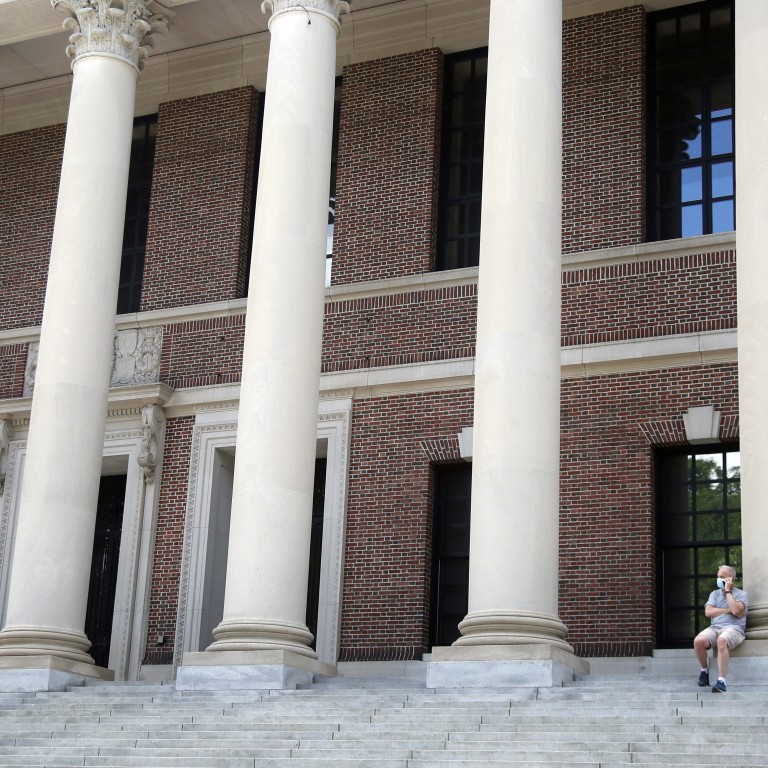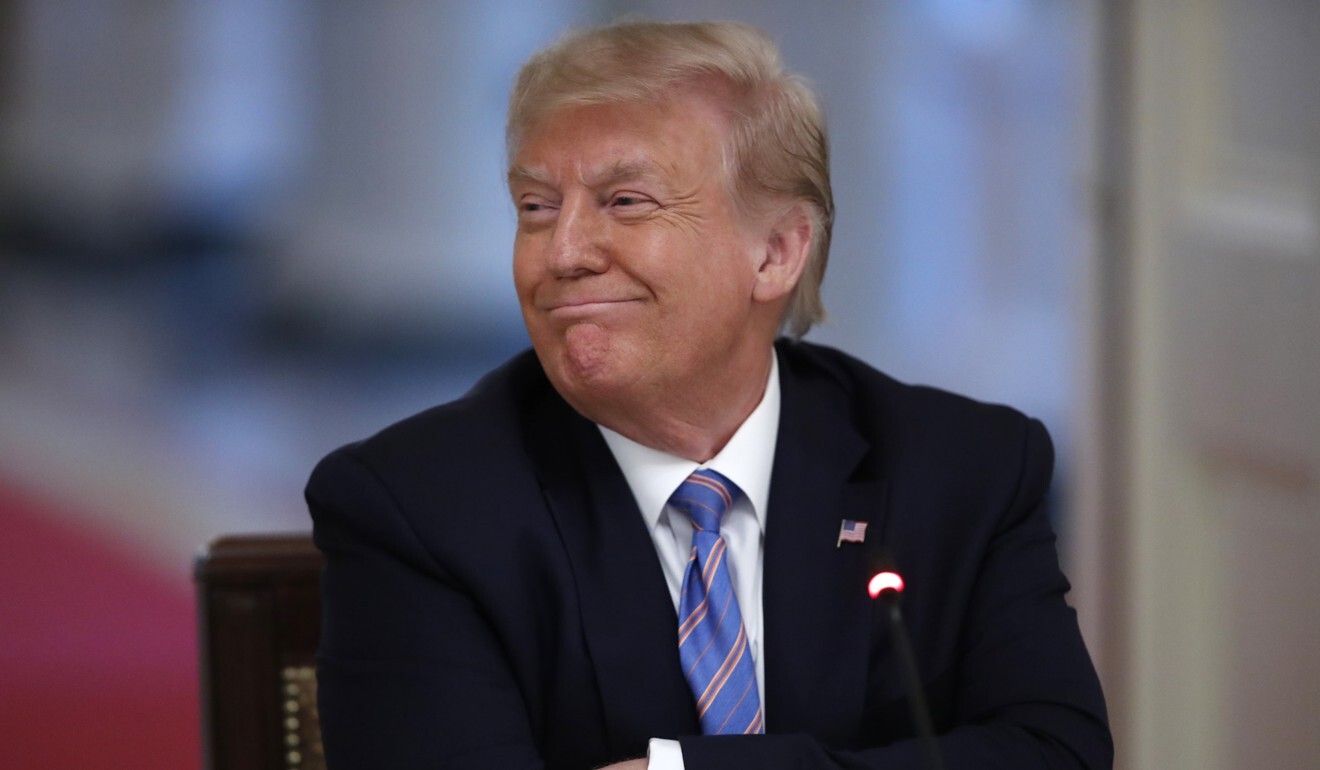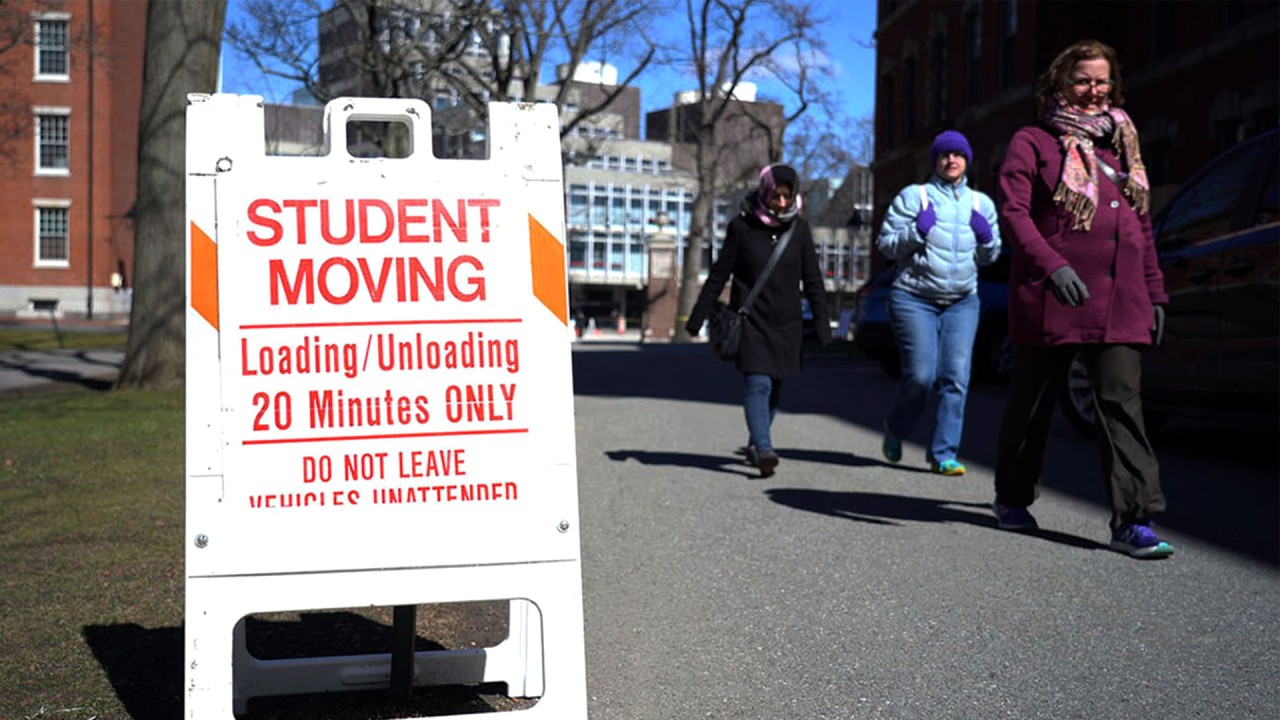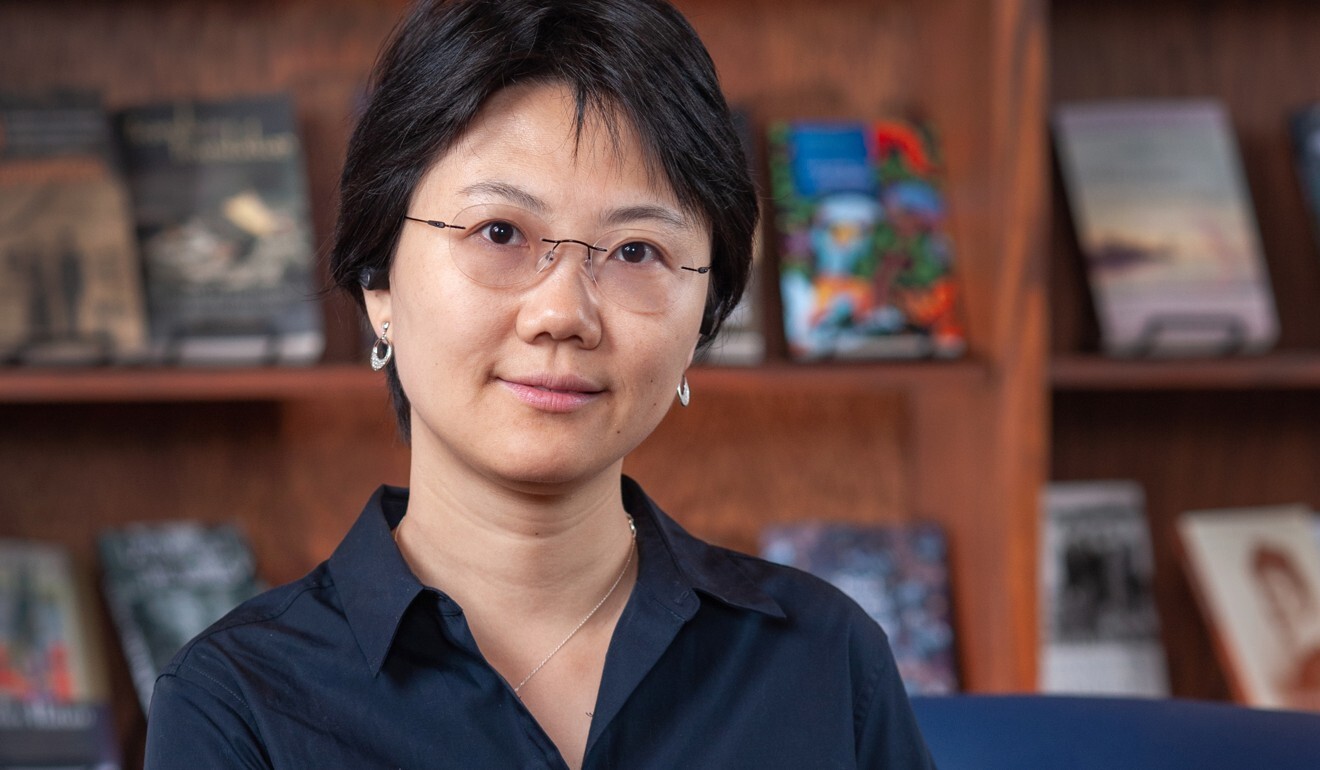
Trump’s limits on international visas unnerve Chinese students in US
- A suspension of foreign work visa programmes and a new bar on foreign students at schools with online classes are just the latest restrictions
- ‘My sense of crisis has been building for a while,’ one recent graduate says
Trump’s executive order last month doesn’t affect those now in the United States – but those with visas worry they will one day be deprived of their legal status. And Chinese students in the country – nearly 370,000 – face new uncertainty about their academics and future employment.
“I know whatever [Trump] does is going to be detrimental,” says Darren Li, 26, a recent graduate who now works as a tax consultant in San Francisco. “My sense of crisis has been building for a while.”

Li, who is from Guangzhou, is not directly affected by Trump’s newest policies but, like many others, he senses a looming threat.
He is on the third and final year of his “optional practical training” (OPT) status – an extension of his student visa – and is waiting for US immigration authorities to approve his application for an H-1B visa. That would allow him to work in the US for up to six years.
“Every new policy curtailing immigrants is horrifying, but the most horrifying thing is that you don’t know what’s going to happen next, and therefore, you don’t know how to plan for the worst.”
Who is affected by Trump’s new rules on work visas?
Li’s concern is not unfounded. Immigration lawyers do not rule out the possibility that Trump might expand his proclamation to all visa categories, regardless of whether the visa holders are already working in the US.
“He has the election. That's his priority,” said Tsui Yee, a New York-based immigration lawyer. Noting the economic turmoil in the US caused by the pandemic, Yee added that Trump was “desperately trying to do whatever he can to try to deflect blame and to scapegoat immigrants”.
Monday’s ruling by the Immigration and Customs Enforcement (ICE) agency dealt a sharp blow to Chinese students in the US.

03:06
US universities vacate students from dorms to slow coronavirus spread
International students attending schools that operate entirely online “may not take a full online course load and remain in the United States,” ICE declared – just as Harvard and other top-tier universities announced plans to run online classes for the coming academic year.
Thus, depending on their institution’s plans, international students in the US will have to risk their own health and that of their peers to take in-person classes – or leave the country. And those who return to China, even if they try to take online classes, will have to do so in very late hours using internet access that is, thanks to China’s “Great Fire Wall”, quite spotty.
US to bar foreign students whose university classes will be online only
“I feel the ICE rules are very vindictive,” said Wu Di, a doctoral student in anthropology at the Massachusetts Institute of Technology in Cambridge, Massachusetts. “What’s worst is that the US just assumes that we are mere consumers of its education system, that we don’t have a life in this country.”
MIT has not yet announced how it plans to run classes in the autumn. Wu, from Jiangsu province, lives in New Haven, Connecticut, and had planned to take remote classes in the autumn.
If the university offers only those, Wu may have to leave the country. And even if it holds classes on campus. she may have to move to Cambridge or commute between New Haven and Cambridge – a trip of more than 2 hours each way – to maintain her status.
Amid growing economic and geopolitical tensions with China, American officials have also announced a plan to cancel the visas of thousands of Chinese graduate students and researchers with ties to universities affiliated with the People’s Liberation Army.
Republican senators have proposed a bill that would prohibit Chinese nationals from receiving visas to study in the STEM fields – science, technology, engineering, maths – in the US.
In this hostile environment, students say that one crucial initiative at risk is the OPT programme – the one that has allowed Li to work in the US for three years since graduating with degree in maths. OPT is the only way international students can stay and work in the US after graduation without a new visa.
Yingyi Ma, a sociologist at Syracuse University who wrote Ambitious and Anxious: How Chinese College Students Succeed and Struggle in American Higher Education, said that the very presence of Chinese students has been politicised “in an unprecedented way”.
In all, Ma said, the administration has sent “a very strong signal” that the US is not welcoming to Chinese nationals.

Indeed, when Trump repeatedly described Covid-19 in March as the “Chinese virus”, Li said he was stunned by the president’s overtly racist tone.
“I had an ‘I’m-done-with-America’ moment,” he said. For the first time, he thought about leaving the country where he has lived for seven years and calls home.
But the way back to Guangzhou is also long. Because of the pandemic, China had significantly reduced inbound flights to control the outbreak at home – sending air fares sky-high and stranding hundreds of thousands of Chinese citizens abroad.
“I feel pretty much stuck in the US,” Li said.
One of every three international students in the US comes from China. Many aspire to stay and work in their host country after finishing their academic programmes. In 2019, roughly 28,400 Chinese nationals received the H-1B visa, accounting for around 15 per cent of H-1B visas issued, according to the US State Department.
Trump’s H-1B visa freeze: will US tech firms lose the next Sundar Pichai?
Mingyu Chen, a Princeton University economist who has studied immigration and higher education, noted that such uncertainty about visas – those for either student or work – discourages international students from even applying to US universities.
“To some international students, having US work experience is an important benefit of studying in the US,” Chen said. “A lower anticipated chance of obtaining an H-1B visa can, therefore, decrease the expected benefit of investing in US education.”
Higher education professionals have long been concerned that increasingly stringent visa policies, along with geopolitical tensions and a rise in racist incidents against Chinese, would lead to a decrease in Chinese student enrolment.
This year, new institutional barriers like pandemic-related travel restrictions, will probably cause a further drop-off, Ma said. But she believes enrolment will bounce back over time.
“A large majority of Chinese students [are] coming to study in the US not for political reasons,” Ma said. “What they really want is quality education opportunities, so that they can improve their career prospects, or they can broaden their horizons and really enjoy being in the process of cultivating their global citizenship.”
But, Ma warned, such aspirations will vanish if the US continues to politicise this group and make studying abroad a grim prospect.
In California, 832 anti-Asian incidents in three months
Xing Zhiyi, a sophomore studying public policy at City University of Hong Kong, thought about applying to American universities at the height of pro-democracy protests in Hong Kong last year. He eventually decided to stay in Hong Kong because he felt things started to look stable in the city this year.
“What America attracts me is its academia, not liberal democratic ideals,” he said. “I still have a strong desire to study in the US.
“But if anti-Chinese racism and xenophobia grow, I’ll have to think about it twice.”

01:25
US colleges face US$15 billion hit as Chinese students stay away amid coronavirus pandemic
Anxiety over visa uncertainty is a bridge too far for Xing. But it’s a prospect many on OPT must deal with.
“If you are already in a bad state, what happens in the outside world can be the last straw that breaks the camel’s back,” said Leslie Liu, 24, a recent graduate from Northeastern University in Boston, Massachusetts.
With a degree in information systems, Liu, who is from Anhui province, faces the same anxieties all college graduates do when trying to land their first job in a recession – except that as an international student, Liu only has 90 days after graduation to land one, or she will have to leave the US.
“Even though getting an H-1B visa is something that feels far away from me at this point, the kind of news and chatter around visas inevitably increases my sense of insecurity.”
US increasingly excludes China from coronavirus research projects
For Yuan Yisu, an informational software engineer in Detroit, his response to visa uncertainty shows in his barely furnished flat.
“I’ve wanted a better monitor,” Yuan said, referring to his computer, “But each time I thought about buying one, it immediately occurred to me that it would only add to the pain of moving. I’ve given up on the thought.”
Many expats share the same sentiment: in the back of their minds, there’s always a sense of preparedness to pack and move because of an unexpected status change. Like Li, Yuan is also awaiting the verdict of his H-1B. He, too, is resigned to the precariousness of his situation.
“If he really cancels my visa,” he said of Trump, “I’ll have to just accept it because I have no control over it.”
